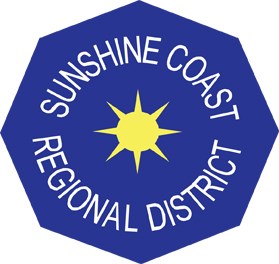The Sechelt Landfill may soon be a lot less organic.
On Jan. 18 the Sunshine Coast Regional District (SCRD) infrastructure committee unanimously recommended the board adopt the Regional Organics Diversion Strategy at its upcoming meeting, scheduled for Jan. 25 (after Coast Reporter’s deadline).
The final version of the report was presented to the committee by staff, with a note that financials, resources and timelines will be fleshed out later this year.
“It’s time to move forward on this and adopt this strategy,” said SCRD vice chair Ian Winn.
The strategy had been brought before the committee four times and has been amended to include the imposition of a commercial food waste ban in 2018, as well as the installation of drop-off depots in Area A, mid-Coast and South Coast.
The strategy has also been amended to include curbside collection of food waste in Electoral Areas B, D, E and F, a food waste reduction campaign, compost coaching and a potential composter subsidy program, all of which will take effect in 2019. A residential food waste ban will start in 2020, if the strategy is adopted.
“There’s no doubt we’ll meet some opposition along the way, but the long game and big picture here, it’s all about our landfill,” said Winn.
In 2014, the SCRD’s residential waste composition study found that 44 per cent of residential garbage is compostable. Staff analysis found that diverting organic waste could extend the landfill’s lifespan by 15 months. The landfill is expected to reach capacity by 2025.
Director Frank Mauro of Egmont/Pender Harbour said he wants to move ahead with the strategy, but with a minor reservation for Area A. “I’m curious what the issue will be once we institute the residential organics ban at the landfill… if there won’t be a push for pickup at that time.” He said garbage pickup is an unpopular choice in his electoral area, making organics pickup difficult on its own. “Really, this is the only way forward that I see right now.”
Organics collection was also on the agenda for the District of Sechelt’s parks, public works and environment committee this week.
Sechelt has been running an organics collection pilot project in the Davis Bay area since 2014.
The committee was due to consider a staff proposal to join the Recycle BC packaging and printed paper (PPP) collection program. A staff report for the Jan. 24 meeting says joining the Recycle BC program will save Sechelt around $142,000 in collection costs and $168,000 in processing costs every year.
The report says the savings, combined with the revenue stream from the program, could “offset the majority of the costs of providing district-wide curbside collection of organics.”
Gibsons is set to negotiate a contract for curbside organics collection for a March 1 start.
The BC Ministry of Environment wants to lower the annual solid waste disposal rate to 350 kilograms per person, and to have 75 per cent of the province covered by organic waste disposal bans by 2020.



